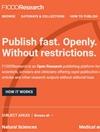提出有效的宗教基金模式,确保马来西亚难民减少贫困
Q2 Pharmacology, Toxicology and Pharmaceutics
引用次数: 0
摘要
背景 COVID-19 严重影响了世界人民的财政和经济福祉。为了解决社会的财政困难,特别是难民和移民等弱势群体的贫困问题,各国实施了各种救济计划和举措。因此,作为伊斯兰社会融资的主要元素之一,宗教基金在伊斯兰历史上一直受到重视,并被证明是减少贫困的实用工具之一。然而,近期的宗教基金减贫倡议更侧重于帮助微型和小型企业家,而在马来西亚的这一关键时期,用于帮助低收入家庭、难民和移民的宗教基金倡议却十分有限。方法 本研究介绍了一种新颖的宗教基金模式,专门用于帮助社会减贫。它专为低收入家庭、难民和移民量身定制,旨在维持他们的经济独立。通过结合宗教基金和众筹的元素,该模式提出了一个以农业为基础的创新型小额信贷计划。它利用未开发的宗教基金土地和以股权为基础的众筹来实现减贫目标。本研究利用现有的学术文献,采用了二次研究方法。结果 本文还讨论了所建议的模式在实现其主要目标之外的潜力,因为该框架表明,宗教基金机构将有持续的资金流入,使其能够启动其他基于宗教基金的项目,通过小额信贷计划创造就业机会,并为股权众筹项目的投资者带来经济回报。结论 本研究不仅强调了拟议模式的可持续性,而且还强调了该模式与人们日益认识到的以价值为基础和社会影响目标的一致性。它进一步探讨了宗教基金在大流行病期间与其他融资工具相结合的潜力,以帮助弱势群体,特别是难民和移民。因此,这项研究有助于实现伊斯兰社会融资的真正目的,突出了研究结果的重要意义。本文章由计算机程序翻译,如有差异,请以英文原文为准。
Proposing an Effective Waqf Model for Ensuring Poverty Reduction among Refugees in Malaysia
Background COVID-19 has heavily impacted the financial and economic well-being of the world’s population. Various national relief programs and initiatives have been carried out to address society’s financial difficulties, especially the issue of poverty among the vulnerable, like refugees and immigrants. Consequently, being one of the main elements in Islamic social finance, waqf has been emphasised and proven throughout Islamic history as one of the practical tools for poverty reduction. However, recent waqf initiatives towards poverty reduction focused more on aiding the micro and small entrepreneurs, whilst limited waqf initiatives were available to help low-income households, refugees, and immigrants during this critical time in Malaysia. Methods This study introduces a novel waqf model, specifically designed to contribute to poverty reduction in society. It is tailored for low-income households, refugees, and immigrants, aiming to sustain their financial independence. By combining the elements of waqf and crowdfunding, this model proposes an innovative agriculture-based microfinance programme. It utilizes undeveloped waqf lands and equity-based crowdfunding to reach its objective of poverty reduction. This study has adopted a secondary research approach using the existing scholarly literature. Results This paper also discusses the potential of the proposed model to deliver more than its primary objective, as the framework illustrates that waqf institutions will have a continuous inflow of funds that will allow them to initiate other waqf-based projects, job creation through the microfinance programmes, and financial return for the investor of equity-based crowdfunding projects. Conclusion This study not only underscores the sustainability of the proposed model, but also its alignment with the increasing awareness of value-based and social impact objectives. It further explores the potential of waqf to be integrated with other financing instruments during the pandemic to help the vulnerable, specifically refugees and immigrants. This research thus contributes to the true purpose of Islamic social finance, highlighting the significance of its findings.
求助全文
通过发布文献求助,成功后即可免费获取论文全文。
去求助
来源期刊

F1000Research
Pharmacology, Toxicology and Pharmaceutics-Pharmacology, Toxicology and Pharmaceutics (all)
CiteScore
5.00
自引率
0.00%
发文量
1646
审稿时长
1 weeks
期刊介绍:
F1000Research publishes articles and other research outputs reporting basic scientific, scholarly, translational and clinical research across the physical and life sciences, engineering, medicine, social sciences and humanities. F1000Research is a scholarly publication platform set up for the scientific, scholarly and medical research community; each article has at least one author who is a qualified researcher, scholar or clinician actively working in their speciality and who has made a key contribution to the article. Articles must be original (not duplications). All research is suitable irrespective of the perceived level of interest or novelty; we welcome confirmatory and negative results, as well as null studies. F1000Research publishes different type of research, including clinical trials, systematic reviews, software tools, method articles, and many others. Reviews and Opinion articles providing a balanced and comprehensive overview of the latest discoveries in a particular field, or presenting a personal perspective on recent developments, are also welcome. See the full list of article types we accept for more information.
 求助内容:
求助内容: 应助结果提醒方式:
应助结果提醒方式:


